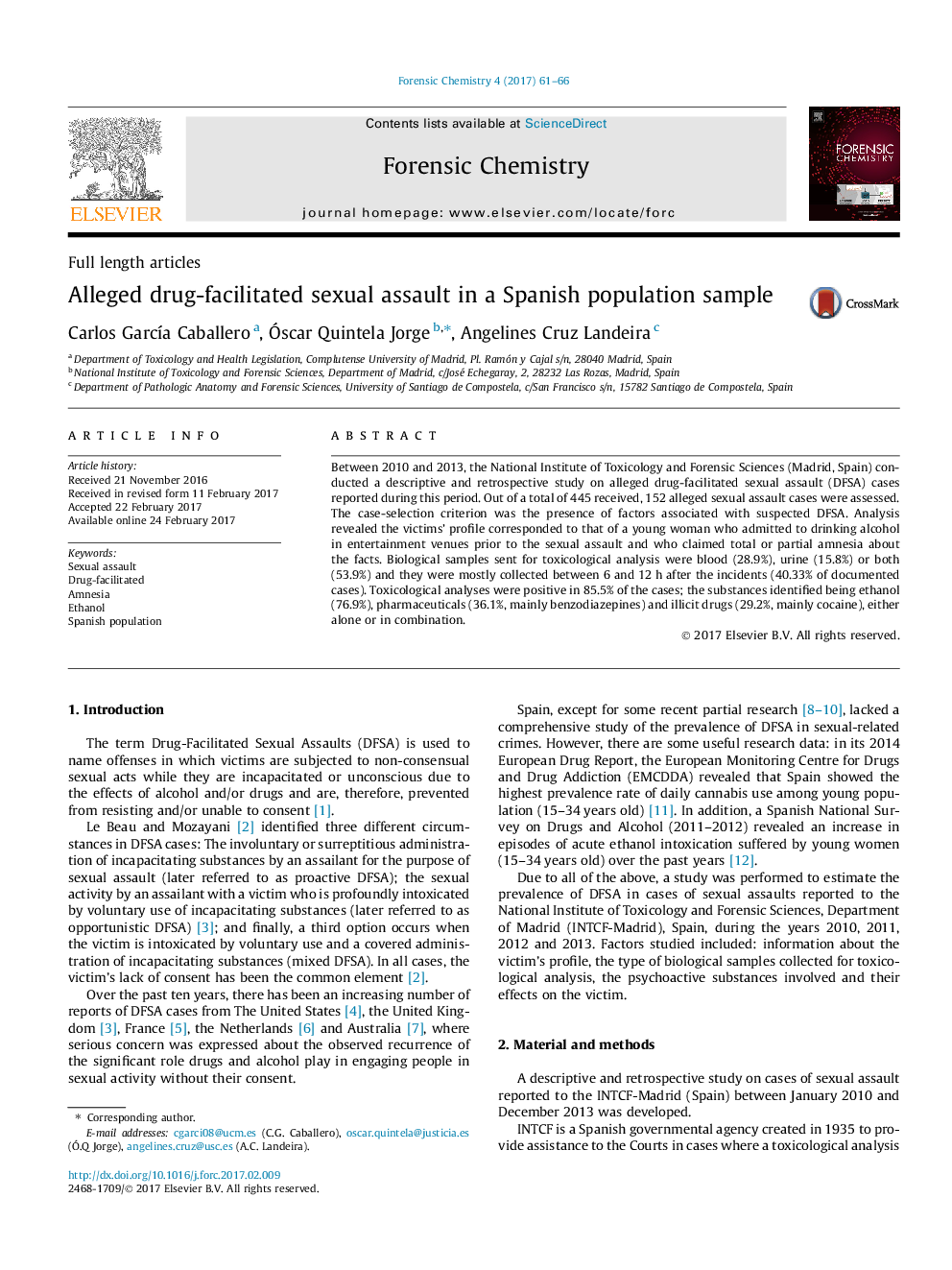| Article ID | Journal | Published Year | Pages | File Type |
|---|---|---|---|---|
| 6462028 | Forensic Chemistry | 2017 | 6 Pages |
â¢A study of alleged DFSA cases in a Spanish population sample has been carried out.â¢Victims were young women who in the 73% of cases admitted a prior consumption of ethanol.â¢Positive results of toxicological analysis were linked with an early collection of samples.â¢Ethanol, pharmaceuticals and illicit drugs were detected either alone or in combination in other countries.â¢Results were relevants for substances commonly detected in other countrie's DFSA studies.
Between 2010 and 2013, the National Institute of Toxicology and Forensic Sciences (Madrid, Spain) conducted a descriptive and retrospective study on alleged drug-facilitated sexual assault (DFSA) cases reported during this period. Out of a total of 445 received, 152 alleged sexual assault cases were assessed. The case-selection criterion was the presence of factors associated with suspected DFSA. Analysis revealed the victims' profile corresponded to that of a young woman who admitted to drinking alcohol in entertainment venues prior to the sexual assault and who claimed total or partial amnesia about the facts. Biological samples sent for toxicological analysis were blood (28.9%), urine (15.8%) or both (53.9%) and they were mostly collected between 6 and 12Â h after the incidents (40.33% of documented cases). Toxicological analyses were positive in 85.5% of the cases; the substances identified being ethanol (76.9%), pharmaceuticals (36.1%, mainly benzodiazepines) and illicit drugs (29.2%, mainly cocaine), either alone or in combination.
